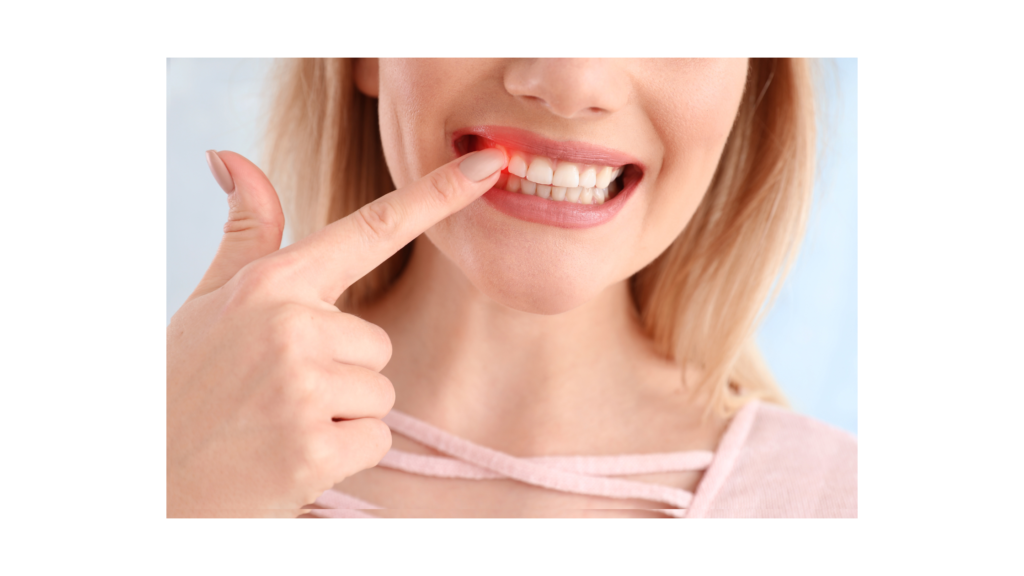In the realm of plant-based nutrition, we often focus on the visible benefits of our dietary choices – improved heart health, balanced weight, and increased energy. However, beneath the surface, a microscopic revolution is taking place within our bodies. The complex ecosystems of microorganisms inhabiting our oral cavities and gut, known as the oral and gut microbiomes, are profoundly influenced by our plant-based diets and play crucial roles in our overall health and well-being.
The human mouth, our first point of contact with food, hosts a diverse community of bacteria, fungi, and viruses that form the oral microbiome. This ecosystem isn’t just confined to our mouths; it serves as a gateway to our digestive system and can significantly impact our health beyond oral hygiene. Similarly, the gut microbiome, thriving in our intestines, is a vast and intricate community of microorganisms that affects everything from our immune system to our mental health. Plant-based diets, rich in fiber and phytonutrients, provide essential nourishment for these beneficial microbes.
Recent research is uncovering a fascinating connection between these two microbiomes, known as the oral-gut axis. This connection is revealing new insights into how our body’s microbial communities interact and influence our health, with particular significance for women. The unique hormonal fluctuations women experience throughout their lives can distinctly affect microbiome composition and function, making the oral-gut connection an essential consideration in women’s health.
This article examines the relationship between the oral and gut microbiomes, with a special focus on its implications for women’s health in the context of plant-based nutrition. We will explore how this connection influences various aspects of women’s well-being, from pregnancy and menopause to specific health conditions more prevalent in women. By understanding this crucial link, we can unlock new approaches to maintaining and improving women’s health through targeted microbiome care, further emphasizing the benefits of a plant-based lifestyle.
As we journey through the world of microbiomes, we’ll discover how the foods we choose not only nourish our bodies but also cultivate thriving microbial communities that support our health from the inside out. Join us as we explore this fascinating frontier in plant-based nutrition and women’s health.

Understanding the Oral Microbiome
Definition and composition
The oral microbiome is a complex biological community of microorganisms that inhabits our mouths. It’s a diverse community comprising over 700 species of bacteria, along with fungi, viruses, and other microbes. This intricate network of organisms forms biofilms on our teeth, gums, tongue, and other oral surfaces.
In a healthy mouth, beneficial bacteria like Streptococcus salivarius and Lactobacillus species coexist with potentially harmful bacteria in a delicate balance. This equilibrium is crucial for maintaining oral and overall health. Interestingly, a plant-based diet rich in whole foods can facilitate the growth of beneficial bacteria while discouraging the overgrowth of harmful ones.
Functions of the oral microbiome
The oral microbiome plays several vital roles in our health:
- Protective barrier: It forms a first line of defense against pathogens, preventing the colonization of harmful microorganisms.
- Nutrient processing: Certain oral bacteria help break down complex carbohydrates from plant-based foods, initiating the digestive process.
- Nitrate reduction: Some oral bacteria convert dietary nitrates (abundant in leafy greens) into nitrites, which can then be converted to nitric oxide, a molecule crucial for cardiovascular health.
- pH regulation: The microbiome helps maintain a balanced pH in the mouth, protecting against tooth decay.
- Immune system education: Exposure to diverse microbes in the mouth helps train our immune system from an early age.
Factors influencing oral microbiome health
Several factors can impact the health and composition of our oral microbiome:
- Diet: A plant-based diet rich in fiber, antioxidants, and diverse plant compounds supports a healthy oral microbiome. Colorful fruits (high in Vitamin C), nutrient-rich vegetables, fiber-packed whole grains, protein-dense nuts, and mineral-rich seeds offer natural prebiotic compounds that help nourish and support the growth of beneficial microorganisms in the digestive system.
- Oral hygiene: Regular brushing and flossing help control bacterial growth, but overly aggressive hygiene practices can disrupt the natural balance.
- Hydration: Adequate water intake, often emphasized in plant-based diets, supports saliva production, which is crucial for maintaining a healthy oral environment.
- Smoking and alcohol consumption: These habits can negatively alter the oral microbiome, promoting the growth of harmful bacteria.
- Medications: Certain medications, particularly antibiotics, can disrupt the oral microbiome balance.
- Stress: Elevated mental and emotional pressure can compromise immune function and disrupt the delicate balance of microorganisms in the mouth.
- Hormonal changes: In women, hormonal fluctuations during menstruation, pregnancy, and menopause can influence the oral microbiome.
Understanding the oral microbiome is crucial because it’s not an isolated system. As we’ll explore in later sections, it’s intimately connected with our gut microbiome and can have far-reaching effects on our overall health, particularly for women following a plant-based lifestyle.
By nurturing a healthy oral microbiome through a varied plant-based diet and good oral care practices, we lay the foundation for better health throughout our bodies. In the next section, we’ll delve into the gut microbiome and begin to uncover the fascinating connection between these two microbial ecosystems.
The Gut Microbiome: A Closer Look

Definition and composition
The gut microbiome refers to the vast community of microorganisms residing in our gastrointestinal tract, primarily in the large intestine. This complex ecosystem is home to trillions of microbes, including bacteria, fungi, viruses, and other microorganisms. In fact, the number of microbial cells in our gut outnumbers our own body cells.
The composition of the gut microbiome is highly individual and can vary based on factors such as diet, lifestyle, and genetics. However, in a healthy gut, beneficial bacteria like Bifidobacterium and Lactobacillus species typically predominate. Plant-based diets are particularly effective at fostering a diverse and healthy gut microbiome due to their high fiber content and rich array of phytonutrients.
Functions of the gut microbiome
The gut microbiome plays a crucial role in numerous bodily functions:
- Digestion and nutrient absorption: Gut bacteria help break down complex carbohydrates from plant foods that our bodies can’t digest on their own, producing beneficial short-chain fatty acids.
- Immune system regulation: A significant portion of our immune system resides in the gut, and the microbiome plays a key role in its development and function.
- Vitamin synthesis: Certain gut bacteria produce essential vitamins, including vitamin K and several B vitamins.
- Barrier function: The microbiome helps maintain the integrity of the gut lining, preventing harmful substances from entering the bloodstream.
- Hormone regulation: Gut bacteria influence the production and regulation of various hormones, including those affecting mood and metabolism.
- Inflammation control: A balanced gut microbiome helps regulate inflammation throughout the body.
Factors affecting gut microbiome health
Several factors can influence the health and diversity of our gut microbiome:
- Diet: This is perhaps the most significant factor. A diverse, plant-based diet rich in fiber, polyphenols, and other plant compounds promotes a healthy and diverse gut microbiome. Fruits, vegetables, whole grains, legumes, nuts, and seeds are excellent for gut health.
- Fermented foods: Plant-based fermented foods like sauerkraut, kimchi, and plant-based yogurts can introduce beneficial bacteria to the gut.
- Antibiotics: While sometimes necessary, antibiotics can disrupt the gut microbiome balance, often requiring time and dietary support to restore.
- Stress: Chronic stress can negatively impact gut microbiome diversity and function.
- Sleep: Poor sleep patterns can disrupt the gut microbiome, highlighting the importance of good sleep hygiene.
- Exercise: Regular physical activity promotes a healthier, more diverse gut microbiome.
- Environmental factors: Exposure to nature, pets, and even household cleaning products can influence our gut microbiome.
- Age and hormonal changes: As we age, our gut microbiome tends to become less diverse. In women, hormonal changes throughout life can significantly impact the gut microbiome.
Understanding the gut microbiome is crucial for overall health, especially for those following a plant-based diet. The foods we eat directly influence the composition and function of our gut microbiome, which in turn affects numerous aspects of our health.
As we’ll explore in the next section, the gut microbiome doesn’t exist in isolation. It’s intimately connected to other microbial communities in our body, including the oral microbiome. This connection opens up fascinating avenues for understanding and improving women’s health through dietary and lifestyle choices aligned with plant-based living.
The Oral-Gut Microbiome Connection
Mechanisms of interaction
The oral and gut microbiomes, once thought to be separate entities, are now understood to be intimately connected. This connection, known as the oral-gut axis, involves several mechanisms:
- Microbial migration: Microbes from the oral cavity can travel to the gut through swallowing. It’s estimated that we swallow about 1 trillion bacteria daily.
- Immune system cross-talk: The immune responses triggered in the mouth can influence immune activity in the gut and vice versa.
- Metabolic interactions: Metabolites produced by oral bacteria can affect gut microbiome function and overall health.
- Inflammatory pathways: Inflammation in the oral cavity can contribute to systemic inflammation, affecting gut health.
The role of the oral-gut axis in health and disease
The oral-gut axis plays a crucial role in maintaining overall health and can contribute to various health conditions when disrupted:
- Digestive health: Oral bacteria can influence digestion, starting in the mouth and continuing through the gut.
- Systemic inflammation: Imbalances in the oral microbiome can lead to increased inflammation throughout the body, including the gut.
- Nutrient absorption: The breakdown of certain nutrients begins in the mouth, affecting their availability in the gut.
- Immune function: The oral-gut axis helps modulate immune responses throughout the body.
Recent research findings
Recent studies have shed light on the importance of the oral-gut microbiome connection:
- Oral microbiome and gut diseases: Research has linked specific oral bacteria to inflammatory bowel diseases like Crohn’s disease and ulcerative colitis.
- Cardiovascular health: The oral-gut axis has been implicated in cardiovascular health, with oral bacteria potentially contributing to atherosclerosis.
- Diabetes: Studies have shown a bidirectional relationship between periodontal disease and diabetes, mediated through the oral-gut axis.
- Mental health: The oral-gut-brain axis is emerging as a key player in mental health, with potential implications for conditions like depression and anxiety.
- Pregnancy outcomes: Oral health and the oral microbiome have been linked to pregnancy complications, highlighting the importance of oral care during pregnancy.
For those following a plant-based diet, these findings underscore the importance of maintaining oral health alongside gut health. The fiber-rich, nutrient-dense nature of plant-based diets can support both oral and gut microbiome health, potentially offering protective effects against various health conditions.
As we delve deeper into the implications for women’s health in the next section, we’ll explore how this oral-gut connection interacts with the unique physiological changes women experience throughout their lives. Understanding this connection can empower women to make informed choices about their diet and lifestyle, leveraging the benefits of a plant-based approach to support both oral and gut health.
Women's Health and the Oral-Gut Microbiome Connection

Hormonal influences on microbiome composition
Women experience unique hormonal fluctuations throughout their lives, which can significantly impact both oral and gut microbiomes:
- Estrogen effects:
- Promotes the growth of certain beneficial bacteria
- Influences saliva production and composition
- Affects gut motility and permeability
- Progesterone can:
- Lead to increased inflammation in oral tissues
- Alter gut microbiome diversity
- Monthly cycle variations:
- Microbiome composition changes throughout the menstrual cycle
- Some women may experience increased oral or gut symptoms at specific points in their cycle
Pregnancy and the oral-gut microbiome
Pregnancy introduces dramatic changes to a woman’s body, including significant shifts in the oral and gut microbiomes:
- Oral health during pregnancy:
- Increased risk of gingivitis and periodontitis
- Changes in saliva composition and pH
- Gut microbiome changes:
- Increased diversity in the first trimester
- Reduced diversity in the third trimester
- Implications for maternal and fetal health:
- Oral health linked to pregnancy outcomes (e.g., preterm birth, low birth weight)
- Maternal gut microbiome influences fetal microbiome development
- Plant-based diet benefits:
- High-fiber foods support beneficial gut bacteria
- Nutrient-dense choices provide essential vitamins and minerals for maternal and fetal health
Menopause and microbiome changes
The transition to menopause brings about significant changes in the oral-gut microbiome connection:
- Estrogen decline effects:
- Increased risk of oral health issues (e.g., dry mouth, bone loss in jaw)
- Alterations in gut microbiome composition
- Metabolic changes:
- Shifts in gut bacteria involved in energy metabolism
- Potential link to menopausal weight gain
- Bone health considerations:
- Gut microbiome plays a role in calcium absorption and bone metabolism
- Oral health can impact overall bone density
- Plant-based strategies for menopausal health:
- Phytoestrogen-rich foods (e.g., soy, flaxseeds) may help balance hormone levels
- Calcium-rich plant foods support bone health
Understanding these life stage-specific changes in the oral-gut microbiome connection is crucial for women’s health. A plant-based diet, rich in diverse fibers, phytonutrients, and essential minerals, can play a supportive role in maintaining microbiome balance throughout these transitions. In the next section, we’ll explore specific health implications of this connection for women, further emphasizing the importance of nurturing both oral and gut health through mindful, plant-based nutrition choices.
Specific Health Implications for Women
Periodontal disease and systemic health

Periodontal disease has unique implications for women’s health, influenced by the oral-gut microbiome connection:
- Cardiovascular risk:
- Women with periodontal disease have a higher risk of cardiovascular events
- Oral bacteria may contribute to arterial plaque formation
- Diabetes management:
- Bidirectional relationship between periodontal disease and diabetes
- Importance of oral care in glycemic control
- Osteoporosis link:
- Potential connection between periodontal bone loss and systemic bone density
- Oral health as an indicator of overall bone health
- Plant-based diet benefits:
- The anti-inflammatory properties of many plant foods may help manage periodontal disease.
- High antioxidant intake, readily accomplished on a plant-based diet, supports oral health.
Vaginal microbiome interactions
The oral-gut microbiome connection extends to the vaginal microbiome, with important health implications:
- Bacterial vaginosis:
- Potential link between oral and vaginal dysbiosis
- Gut health influencing vaginal microbiome balance
- Urinary tract health:
- Gut microbiome affecting urinary microbiome composition
- Potential protective effects of a healthy oral-gut axis
- Plant-based considerations:
- Prebiotic fibers supporting beneficial bacteria throughout the body
- Potential benefits of fermented plant foods for vaginal health
Autoimmune disorders and the oral-gut connection
Women are more prone to certain autoimmune disorders, which may be influenced by the oral-gut microbiome:
- Rheumatoid arthritis:
- Potential role of oral bacteria in triggering or exacerbating symptoms
- Gut dysbiosis linked to increased inflammation
- Lupus:
- Associations between periodontal disease and lupus severity
- Gut microbiome alterations observed in lupus patients
- Sjögren’s syndrome:
- Oral dryness affecting oral microbiome balance
- Potential gut involvement in disease progression
- Plant-based diet potential:
- Anti-inflammatory effects of plant-based eating may help manage symptoms
- Diverse plant foods supporting a balanced immune response
Mental health: The gut-brain axis in women
The oral-gut-brain axis plays a crucial role in women’s mental health:
- Depression and anxiety:
- Higher prevalence in women
- Gut microbiome influences neurotransmitter production and mood regulation
- Premenstrual syndrome (PMS):
- Potential link between gut health and PMS symptoms
- Role of inflammation in mood changes
- Perinatal mental health:
- Gut microbiome changes during pregnancy, affecting mood
- Potential for dietary interventions to support mental well-being
- Plant-based strategies:
- Fiber-rich foods supporting the production of beneficial neurotransmitters
- Potential mood-boosting effects of certain plant compounds (e.g., polyphenols)
Understanding these specific health implications emphasizes the importance of maintaining a healthy oral-gut microbiome connection for women’s overall well-being. A varied, nutrient-dense plant-based diet can play a supportive role in managing these health concerns, offering protective benefits through its effects on the oral and gut microbiomes. In the next section, we’ll explore practical strategies for women to maintain a healthy oral-gut microbiome through plant-based nutrition and lifestyle choices.
Maintaining a Healthy Oral-Gut Microbiome: Practical Tips for Women

Dietary considerations
- Diversify plant foods:
- Aim for 30+ different plant foods per week
- Include a variety of fruits, vegetables, whole grains, legumes, nuts, and seeds
- Focus on fiber:
- Target 25-30g of fiber daily
- Include both soluble and insoluble fibers for optimal gut health
- Incorporate prebiotics:
- Foods like garlic, onions, leeks, asparagus, and Jerusalem artichokes
- Supports the growth of beneficial bacteria in both oral and gut microbiomes
- Choose polyphenol-rich foods:
- Berries, dark leafy greens, cocoa, green tea
- Offer antioxidant and anti-inflammatory benefits
- Include fermented plant foods:
- Sauerkraut, kimchi, plant-based yogurts, and kefirs
- Provide beneficial bacteria and support microbiome diversity
Oral hygiene practices
- Brush twice daily:
- Use a soft-bristled brush and fluoride toothpaste
- Consider plant-based toothpaste options
- Floss daily:
- Removes food particles and plaque between teeth
- Supports gum health
- Use an alcohol-free mouthwash:
- Look for options with natural ingredients
- Avoid harsh antimicrobial rinses that can disrupt the oral microbiome
- Stay hydrated:
- Drink plenty of water throughout the day
- Supports saliva production, crucial for oral health
Stress management and lifestyle factors
- Prioritize sleep:
- Aim for 7-9 hours of quality sleep nightly
- Poor sleep can negatively impact both oral and gut microbiomes
- Regular exercise:
- Engage in moderate exercise most days of the week
- Supports overall microbiome health and diversity
- Stress reduction techniques:
- Practice meditation, yoga, or deep breathing exercises
- Chronic stress can disrupt microbiome balance
- Avoid alcohol and smoking:
- Both can negatively impact oral and gut microbiomes
Probiotics and prebiotics
- Consider probiotic supplements:
- Look for strains beneficial for both oral and gut health
- Consult with a healthcare provider for personalized recommendations
- Focus on food-based probiotics:
- Fermented plant foods offer natural probiotics
- May be more beneficial than supplements for some individuals
- Combine probiotics with prebiotics:
- Creates a synbiotic effect, enhancing benefits
- Whole plant foods often contain both prebiotics and probiotics
- Timing matters:
- For maximum benefit, consume probiotic supplements between meals rather than with food.
- Some studies suggest the benefits of oral probiotics before bed
By implementing these practical tips, women can support a healthy oral-gut microbiome connection through plant-based nutrition and lifestyle choices. Remember that individual needs may vary, and it’s always wise to consult with healthcare professionals for personalized advice, especially when dealing with specific health concerns. In our next and final section, we’ll explore future directions in research and treatment related to the oral-gut microbiome connection and women’s health.
Future Directions in Research and Treatment

Personalized microbiome therapies
- Individualized dietary recommendations:
- Tailoring plant-based diets based on personal microbiome profiles
- Potential for AI-driven meal planning optimized for oral and gut health
- Custom probiotic formulations:
- Developing strain-specific probiotics for women’s health issues
- Potential for oral probiotics designed to colonize the gut
- Microbiome transplants:
- Exploring oral microbiome transplants, similar to fecal transplants
- Potential for treating resistant oral or systemic conditions
Diagnostic potential of oral and gut microbiome analysis
- Early disease detection:
- Using oral or gut microbiome signatures to identify health risks
- Potential for non-invasive screening methods
- Monitoring treatment efficacy:
- Tracking microbiome changes to assess the effectiveness of interventions
- Adjusting treatments based on microbiome responses
- Pregnancy health markers:
- Utilizing oral and gut microbiome profiles to predict pregnancy complications
- Developing targeted interventions for high-risk pregnancies
Challenges and opportunities in microbiome research
- Standardization of methods:
- Developing consistent protocols for microbiome sampling and analysis
- Improving comparability across studies
- Long-term studies:
- Investigating the impact of plant-based diets on oral-gut microbiome over years
- Exploring generational effects of microbiome health
- Integrating multi-omics approaches:
- Combining microbiome data with genomics, metabolomics, and other -omics
- Building a more comprehensive understanding of host-microbe interactions
- Women-specific research:
- Increasing focus on women’s unique microbiome patterns and health needs
- Exploring microbiome changes across the lifespan in women
Emerging technologies and therapies
- Microbiome-modulating foods:
- Developing functional foods targeting specific microbial populations
- Creating synbiotic products optimized for women’s health
- Phage therapy:
- Using bacteriophages to target harmful bacteria in the oral cavity or gut
- Potential for highly specific microbial management
- Artificial intelligence in microbiome research:
- Utilizing machine learning for microbiome data analysis and prediction
- Developing AI-driven diagnostic tools for microbiome-related health issues
- Wearable technology:
- Creating devices for real-time monitoring of oral or gut microbiome status
- Integrating microbiome data with other health metrics for comprehensive care
As research in the field of oral-gut microbiome connection continues to advance, it holds great promise for improving women’s health through plant-based nutrition and targeted interventions. These future directions highlight the potential for more personalized, precise, and effective approaches to maintaining optimal oral and gut health throughout a woman’s life.
While many of these developments are still in the early stages, they underscore the importance of the oral-gut microbiome connection in women’s health and the potential of plant-based diets to support this vital aspect of well-being. As we look to the future, it’s clear that nurturing our microbial ecosystems will play an increasingly important role in holistic health care and disease prevention strategies.
Conclusion
Recap of key points
- The oral-gut microbiome connection:
- Complex interplay between oral and gut microbial communities
- Significant impact on overall health, particularly for women
- Women’s health implications:
- Hormonal influences on microbiome composition throughout life stages
- Specific health concerns related to oral-gut microbiome balance
- Plant-based diet benefits:
- Supporting diverse and healthy microbial ecosystems
- Providing essential nutrients and compounds for optimal microbiome function
- Practical strategies:
- Dietary considerations for nurturing oral and gut health
- Lifestyle factors influencing microbiome balance
The importance of the oral-gut microbiome connection in women's health
The oral-gut microbiome connection emerges as a crucial factor in women’s health, influencing numerous aspects of well-being:
- Systemic health: From cardiovascular health to autoimmune conditions, the oral-gut axis plays a significant role in managing and preventing various diseases.
- Reproductive health: Throughout different life stages – from menstruation to pregnancy and menopause – the microbiome adapts and influences hormonal balance and overall health.
- Mental wellbeing: The gut-brain axis, extending to include oral health, impacts mood, stress response, and cognitive function.
Preventive care: Understanding and nurturing the oral-gut connection offers new avenues for proactive health management and disease prevention.
Encouragement for proactive microbiome care
As we’ve explored throughout this article, maintaining a healthy oral-gut microbiome is not just about preventing disease – it’s about optimizing overall health and wellbeing. For women following or considering a plant-based lifestyle, the benefits extend beyond personal health to environmental sustainability and ethical considerations.
- Embrace dietary diversity: Experiment with a wide variety of plant foods to support a diverse microbiome.
- Stay informed: Keep abreast of emerging research in microbiome science and women’s health.
- Listen to your body: Pay attention to how different foods and lifestyle choices affect your oral and gut health.
- Seek professional guidance: Consult with healthcare providers knowledgeable about plant-based nutrition and microbiome health for personalized advice.
- Share knowledge: Educate friends and family about the importance of the oral-gut microbiome connection for overall health.
By taking a proactive approach to oral and gut microbiome care through plant-based nutrition and lifestyle choices, women can harness the power of their microbial allies to support vibrant health throughout their lives. As research continues to unfold, the oral-gut microbiome connection promises to be an exciting frontier in our understanding of health and disease, offering new possibilities for personalized, effective, and holistic healthcare approaches.
Remember, every bite of plant-based food is an opportunity to nourish not just your body but the trillions of microbes that support your health. By caring for your oral and gut microbiomes, you’re investing in your immediate and long-term well-being, paving the way for a healthier, more balanced life.

